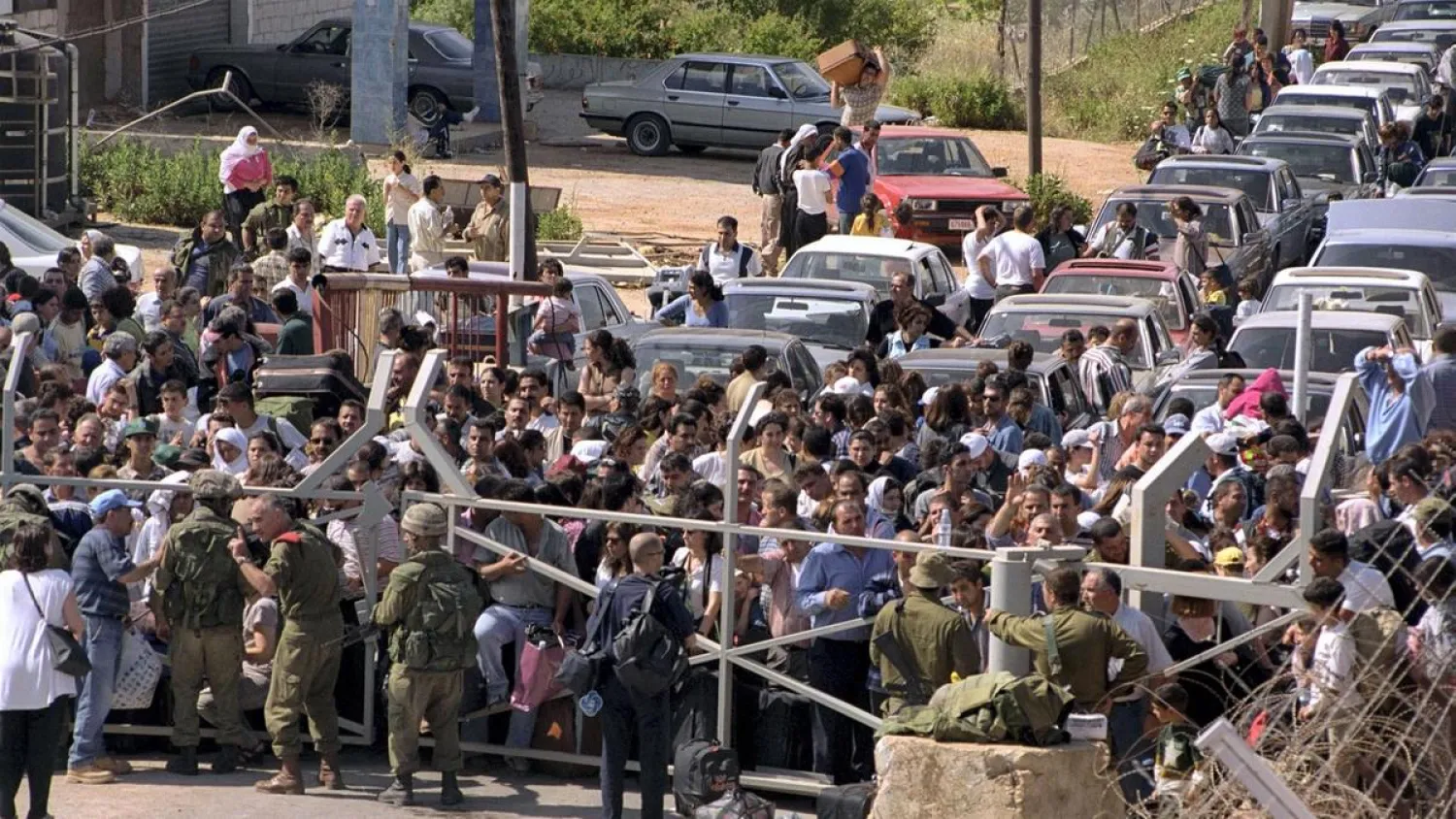Rajaa Beshara, a resident of the Deir Mimas village in Lebanon’s southern Merjeyoun province, says the South Lebanon Army (SLA) killed her brother in the early 1980s because he was active in resisting Israeli occupation of the South.
He helped men who refused mandatory military conscription in the SLA, which is why the Israelis killed him, she told Asharq Al-Awsat. They booby-trapped the area around his corpse to prevent anyone from burying it.
“They broke my mother’s heart,” she recalled. It took them three days to find a way to retrieve his body.
A native of the town of Qlayaa revealed to Asharq Al-Awsat that his aunt used to work as a servant since she was 13-years-old in order to raise money to pay for her siblings’ education. She married a military officer at 16. He was killed by Israeli strikes against Palestinians in southern Lebanon. No one but an Israeli family would take her in, so she worked for them during the 1980s, he said on condition of anonymity.
“Now she is labeled as an agent and collaborator.”
The issue of Lebanese collaborators with Israel during its occupation of the South, which started after its 1982 invasion of Lebanon, has returned to the spotlight as debate rages over an amnesty law. One of its articles calls for pardoning people who did not collaborate with Israel’s military, including families of SLA members. The article stipulates that those seeking to return to Lebanon must abandon their other (Israeli) nationality. Many Lebanese fled to Israel on the eve of the May 25, 2000 liberation out of fear of persecution.
The SLA was formed in Marjeyoun in 1976 by Saad Haddad, a Lebanese army defector. In 1984, another defector, Antoine Lahd assumed command. He killed and tortured Lebanese and Palestinians and received military and logistic support from the Israeli Defense Ministry.
No official figures exist over the number of Lebanese who fled to Israel in 2000. They are estimated at 8,000, while those still in Israel are estimated at around 3,000-3,500. The others have immigrated to other countries. Some refuse to return to Lebanon after they obtained Israeli citizenship and integrated in its society and even served in its military. Other were even born and raised in Israel and know no other home.
The Qlayaa resident spoke of a family that fled to Israel and how one of its children, a seven-year-old at the time, could not tolerate living there. He snuck back into Lebanon and lived with his relatives. When he became an adult, he was able to restore his family home where he now lives.
Rajaa said that talk of the amnesty takes her back to 1976 when Haddad formed the Free Lebanon Army, which later became the SLA, under the claim of “protecting Christians and Palestinians.”
“The Israelis at the time tried to appear as though they harbored good intentions. They even opened the border to the Lebanese, claiming to help them,” she added, criticizing leftist, nationalist and Palestinian parties for failing to realize the Israelis’ real intentions of exploiting the poor in areas that were neglected by the state.
Some of the poor saw no other way to earn a living but through working for Israel for good pay, she revealed. The SLA had imposed mandatory conscription for all youths regardless of their sect.
Francois al-Hajj, a Rmeish native who would later rise up the ranks and become a prominent Lebanese army officer, refused to enlist and collaborate with the enemy. He fled to Beirut. He would later be assassinated for his role in commanding battles in the northern Nahr al-Bared camp in 2007.
Other families were not as lucky and did not have the luxury of being able to flee to Beirut, said Rajaa. They were forced to stay in the South and their sons ended up working for Israel.
She said the label of “collaborator” should not be generalized to everyone who was forced to work for Israel. She recalled how a guard at Khiyam prison was kind to the inmates and smuggled food to them. When the South was liberated, the freed inmates even visited his house and promised that his wife would be unharmed. The guard ended up in prison for his role. The former inmates even visited him in prison to thank him for his kindness.
“I don’t know how someone who fled to an enemy country could be included in an amnesty…. The law is being used for sectarian and electoral purposes,” she charged.
The Qlayaa resident agreed with Rajaa in that the amnesty law is vague on the concept of treason, specifically towards those who chose to commit their crimes. Those people should be heavily punished. As for the poor, they were forced to join the SLA and work in Israel. They should be helped and rehabilitated, he suggested.
















